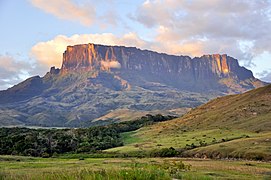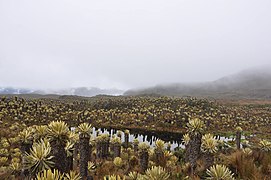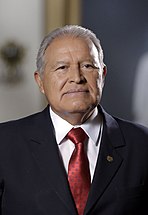Ceneria
Cenerian Congressional Republic Repubblica Congressuale Ceneriana (Vespasian) | |
|---|---|
| Motto: Onore e Lealtà Honor and Loyalty | |
| Anthem: Dopo le Nuvole, il Sole After the Clouds, the Sun | |
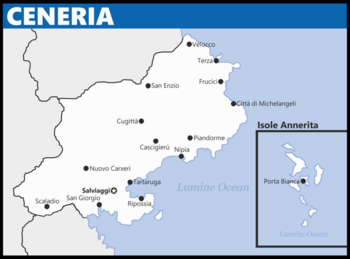 | |
| Capital and Largest city | Salviaggi |
| Official languages | Vespasian Chanuche Aiate |
| Ethnic groups | 52% Mixed (Mista) 40% Euclean 5% Native 2% Bahian 1% Other |
| Demonym(s) | Cenerian |
| Government | |
• President | Pasquale Spezzano |
• Vice President | Amelia Lucchese |
| Legislature | Cenerian National Congress |
| Establishment | |
• Establishment of the Cenerian Republic | December 24 1794 |
| Population | |
• 2020 estimate | 22,093,319 |
| Gini (2020) | 40.2 medium |
| HDI (2020) | 0.787 high |
| Currency | Cenerian Moneta (CEN) |
| Internet TLD | .cen |
Ceneria, officially the Cenerian Congressional Republic (Vespasian: Repubblica Congressuale Ceneriana), is a country in Asteria Inferior. It borders Gapolania to the north, Arbolada to the south, and Adamantina to the west. It's eastern coastline is located along the Lumine Ocean, it also includes the Isole Annerita island chain in the Lumine Ocean. The country is divided into 14 Departments (Dipartimento), the capitol city of Ceneria is Salviaggi.
The land of Ceneria was originally settled by the Chanuche people in the north and the Aiate peoples in the south, here they settled in the valleys and coastline of Ceneria. It would eventually be colonized by Vespasian colonists, around the modern-day city of San Giorgio was where the first and largest colony initially was. The colony eventually became known as the colony of Sangiorgia, where it would grow from there, other major cities such as Salviaggi and Terza.
Whilst it remained a part of the Etrurian First Republic it eventually wanted to gain independence. The colony would join it's neighbors and declare independence, the movement for independence renamed Sangiorgia to Ceneria, meaning "land of ashes", and declared independence as the Cenerian Republic lead by the leader of the independence movement, Clemente Michelangeli. During the first republic multiple military coups took place that lead to authoritarian governments throughout the 20th century, especially that of General Benedetto Rizzo. It was eventually overthrown by a revolution lead by General Graziano Di Mozea and Bishop Ennio Udinese.
The country entered a period of peace until the Great Collapse, it stayed neutral in the Great War. In the 1950s anmd 60s the rise of far-left and far-fight paramilitaries lead to the period known as Il Tumulto which ended with a far-right junta taking over in the 70s. It was eventually overthrown in 1980, left-wing rebels still existed until 1990 when a new constitution was adopted.
Today the Red Revolutionary Labour Party is the largest party in the country. It is a member of the CN and ASTCOM.
Etymology
The name for "Ceneria" was originally Sangiorgia, named after the capitol colony of San Giorgio, named after Saint George, one of the patron saints of colony. The colony was eventually renamed to Ceneria when it declared independence from Etruria, to differentiate itself from Euclean rule the independence movement called for the name of the colony of Ceneria, coming from the Vespasian word Cenere, meaning ashes, named after the volcanoes in the colony.
History
Prehistory
Pre-Colonial Ceneria
Colony of Sangiorgia
Independence

19th Century
1892 Revolution
Early 20th century
- Cenerian Years of Serenity
- Great Collapse
- Great War
- Rise of the far-left and far-right
Late 20th century
- Il Tumulto
- Far-right junta
- 1981 Coup
- 1990 Peace Deal
21st Century Ceneria
- Rise of the PLRR

Geography
Climate
Biodiversity
Government
Political parties
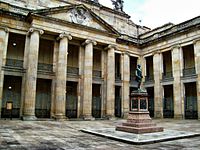 |
|
Government (132) Red Revolutionary Labour Party (95) United Socialist Force (32) Indigenous Representation Party (4) Opposition (115) Sotirian Democratic Society (34) Liberty Party (24) National People's Party (24) Spirit of the Republic (17) Cenerian Section of the Workers' International (16) |




